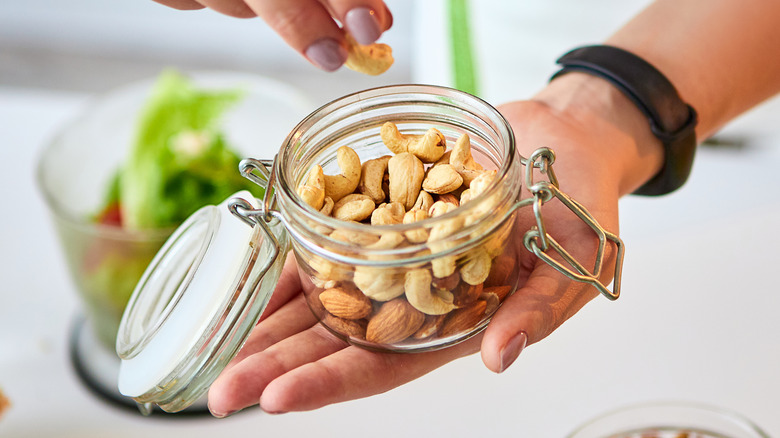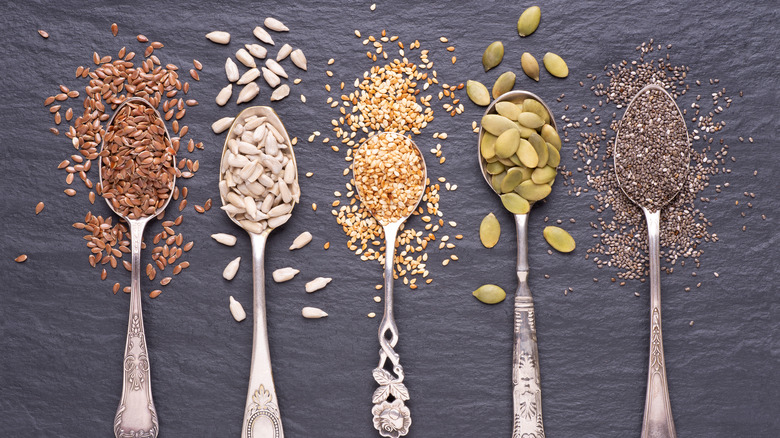Nuts You Should Be Eating If You Need More Zinc
Zinc is an essential trace element that supports the body in a number of ways. From assisting in wound healing and immune function to supporting our sense of taste, vision, and blood clotting, zinc plays a vital role in maintaining our health (via WebMD). While it's naturally found in the body, it can't be stored, so it's important to eat foods rich in zinc if you need more. Whether you're vegan, plant-based, or a carnivore, here are a couple of nuts to add to your diet for more zinc.
At the top of the list is one of the most expensive nuts, pine nuts. "Pine nuts contain about 6.5 grams of zinc per 3-ounce serving," shares registered dietitian Maggie Michalczyk with Men's Health. Not only are they high in zinc, but pine nuts support healthy weight management, brain health, and heart health (per Healthline). Next on the list are almonds. Often found in trail mix or as the base in plant-based milk, the almond packs a mighty zinc punch. In fact, MedicalNewsToday states that 1 ounce of almonds has 0.9 grams of zinc. Almonds are also loaded with folate, magnesium, phosphorus, and calcium, and are high in fiber (via MedicalNewsToday).
Don't forget to eat seeds
The creamy cashew we love is often associated with nuts, but it's technically not a nut — it's a seed. Coming from the cashew tree, these seeds are nutrient-dense. About 18 raw cashews (a 1-ounce serving) contain 15% of your daily value of zinc, according to LiveStrong. "Cashews also contain vitamin E, which acts as an antioxidant to help protect cells from the damaging effects of free radicals, and therefore may help slow the aging process," Maria Syn, registered dietitian and nutritionist, tells LiveStrong. Since the protein collagen is needed to help combat the effects of aging on joints and muscles, it requires hefty amounts of zinc and other minerals, explains the Cleveland Clinic. That's where eating cashews come in — the healthy antioxidants in these seeds may aid in skin health.
Right beneath cashews is another popular seed known for its association with the fall: pumpkin seeds. While fall is commonly associated with pumpkin pie, pumpkin seeds are available year-round and are loaded with zinc. According to Healthline, a 1-ounce serving has 14% of the daily recommended amount of zinc. These seeds are also high in magnesium, manganese, phosphorus, and iron, and support heart health and sleep (via Healthline).


